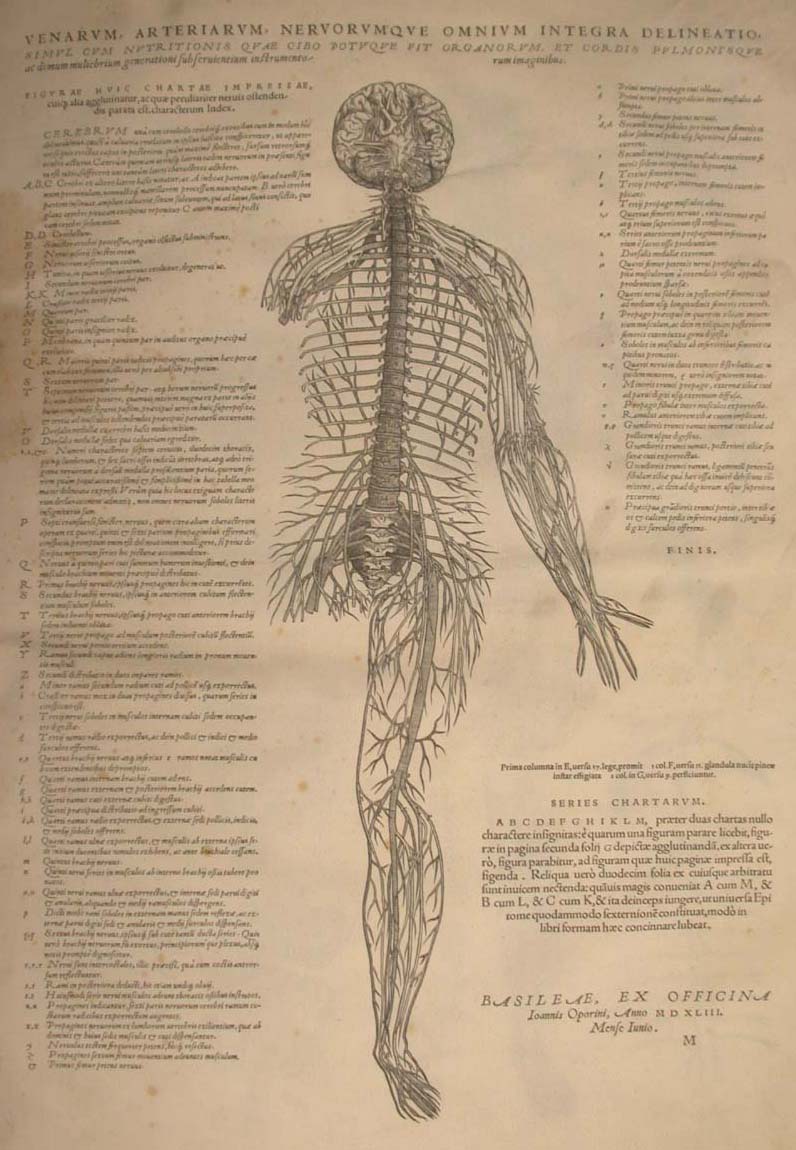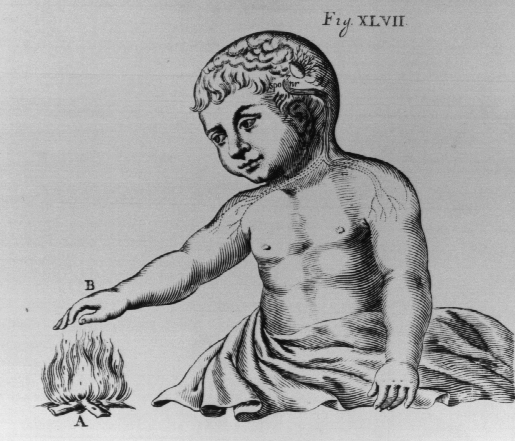
Biology
202
Neurobiology and Behavior
Spring 2007


| Biology
202 | 
|
The challenge in general
Review of Blink, NY Times Book Review, 16 January, 2005
The response in general
| Biology major? | |
| Psychology major? | |
| NBS concentrator? | |
| Other majors | |
| Satisfy science requirement | |
| Interested in biology/nervous system? | |
| Interested in psychology/behavior? | |
| Interested in philosophy/nature of reality/human experience? | |
| Interested in practical problems? medicine, psychiatry, education social activism, etc? | |
| Want to understand who you are? why you/other people behave the way you/they do? What you/they can do about it? |
Neurobiology and BEHAVIOR ... what is "behavior"?
| < |
NEUROBIOLOGY and behavior ... Neurobiology = study of the nervous system ... what is the "nervous system"?

| Image by Andreas Vesalius (1514-1564), contemporary of Copernicus, suggested (less than 500 years ago) that nervous system rather than heart was origin of behavior (see Milestones in Neuroscience Research for a time line extending from 4,000 B.C.). | 
| Image by Rene Descartes (1596-1650). Set framework for several centuries (and continuing) discussion: mind and body distinct things or same thing? |
| Nervous system is material object, part of body, can be touched, manipulated, measured. What IS the relationship between brain (nervous system) and behavior (broadly defined to include human experience)? Subset of this are questions such as the relation between mind and brain, mind and body, matter and spirit, matter and form ... | |||
| Agree with Dickinson et al. | |
| Disagree with Dickinson et al. | |
| Unsure/fence-sitting |
Brain = behavior?, from a "scientific" approach:
Issue is not "Truth" but whether there is a good "summary of observations", "working hypothesis", something that contributes to getting it continually "less wrong" is useful for the ongoing generation of new stories in science and in culture at large ...
Start with overview of the "trend of the evidence":
Our task for the semester (and beyond?):
Let's roll ... Forum area this weekend: YOUR thoughts on "brain=behavior", on science, on ... ?
To be continued
| Course Home Page
| Complexity | Serendip Home |